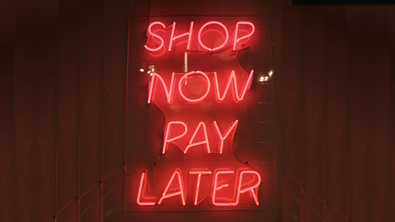Sustainable Haircare
Sustainable Haircare
Author: Jenna White | San Francisco Hairstylist
July 5th, 2020
July 5th, 2020
The products we use to beautify ourselves also unfortunately decay the earth, particularly our water systems. Certain sunscreen ingredients have been proven to deplete coral reefs (1). Micro-beads and micro-plastics are scattered throughout the ocean, with the former commonly used in face wash and the latter constantly shedding off our clothes in the wash (2). Hairspray and fragrances containing Volatile Organic Compounds (VOCS) evaporate in the air and dissolve in water, eventually making their way back into what we eat and drink every day (3).
Cradle to cradle products can be fully recycled in a process that returns all materials used to nature in a non-toxic form. With growing awareness around global warming and the health of our planet, companies are embracing this concept in their manufacturing and supply chain operations. They also know that sustainable practices influence the purchasing preferences of Millennials and Gen Z, who are acutely aware of what their future could look like if brands fail to change their production processes. Read on to learn more about how hair-related beauty products are supporting the cause.
Water
Plastic
Sustainable Haircare
We have the opportunity to invest in lowering the use of plastic and water. A brighter future depends on it, so do your research and start thinking about how to align with more sustainable beauty brands.
Sources
1 Skin Care Chemicals and Coral Reefs, National Ocean Service
2 Microplastics, microbeads: What you did not know about self-care products, DownToEarth
3 VOC's - Vapors in the Air, Dissolved in Ground Water, USGS
4 Nutrition and Healthy Eating, Mayo Clinic
5 About Us, water.org
6 The Global Water Crisis, water.org
7 Containers and Packaging: Product-Specific Data, US Environmental Protection Agency
8 The Immense, Eternal Footprint Humanity Leaves on Earth: Plastics, The New York Times, July 2017
9 Plastic waste surges as coronavirus prompts restaurants to use more disposable packaging, CNBC, June 2020
10 Circular beauty? Consumer mindsets are shifting from ‘disposability to durability’, says TerraCycle, cosmeticsdesign-europe.com, Dec 2019
11 Loop’s launch brings reusable packaging to the world’s biggest brands, GreenBiz, Jan 2019
13 Issues Brief: Marine Plastics, The International Union for Conservation of Nature (IUCN), May 2018
Cradle to cradle products can be fully recycled in a process that returns all materials used to nature in a non-toxic form. With growing awareness around global warming and the health of our planet, companies are embracing this concept in their manufacturing and supply chain operations. They also know that sustainable practices influence the purchasing preferences of Millennials and Gen Z, who are acutely aware of what their future could look like if brands fail to change their production processes. Read on to learn more about how hair-related beauty products are supporting the cause.
Water
- Makes up 60% of the human body, needs to be replenished by drinking 2.7 - 3.7 liters of it per day (4).
- Today, 785 million people – 1 in 9 – lack access to safe water and 2 billion people – 1 in 3 – lack access to a toilet (5).
- More than 1.9 billion people live without connections to household water (over six times the population of the United States) (6).
- People living in these conditions, particularly women and children, need to look for water each day, robbing them of time that could be spent on work, school, and caring for their families (6).
Plastic
- Between 1960 to 2016 almost 70% of plastic packaging in the US between wound up in landfills (7).
- 8.3 billion metric tons of plastic have been produced since it was introduced in the 1950s, with around half of it made since 2004 (8).
- Single use plastic is projected to increase by 40% over the next decade (9).
- 8 million tons of plastic end up in the ocean every year, contributing to 80% of trash debris in the ecosystem (13).
- Hundreds of marine species ingest, suffocate from, and become entangled in plastic waste (13).
Sustainable Haircare
- Powder-to-foam shampoos
- Consumers add water during use
- More washes fit into a single bottle
- Removing water pre-purchase reduces weight and lowers shipping costs
- Examples: OWA Haircare, One Love Organics Healthy Locks Dry Shampoo Powder, Lush No Drought Dry Shampoo
- Biodegradable packaging
- Containers made from materials that can be recycled or returned to earth in a non-toxic form
- Examples: Love Beauty and Planet
- Durable packaging
- Containers made from imperishable materials (like glass) that can be refilled
- Stop throwing away bottles for products you consistently use
- "Milkman model," products are delivered to customers at the same time empties are picked up (11)
- Empties are washed, refilled and restocked for delivery to another customer (11)
- Examples: Plaine Products, Hairstory
- No packaging
- Shape products into solid bars of soap
- Requires less or no packaging
- Examples: Ethique, Eco Roots, The Earthling Co.
We have the opportunity to invest in lowering the use of plastic and water. A brighter future depends on it, so do your research and start thinking about how to align with more sustainable beauty brands.
Sources
1 Skin Care Chemicals and Coral Reefs, National Ocean Service
2 Microplastics, microbeads: What you did not know about self-care products, DownToEarth
3 VOC's - Vapors in the Air, Dissolved in Ground Water, USGS
4 Nutrition and Healthy Eating, Mayo Clinic
5 About Us, water.org
6 The Global Water Crisis, water.org
7 Containers and Packaging: Product-Specific Data, US Environmental Protection Agency
8 The Immense, Eternal Footprint Humanity Leaves on Earth: Plastics, The New York Times, July 2017
9 Plastic waste surges as coronavirus prompts restaurants to use more disposable packaging, CNBC, June 2020
10 Circular beauty? Consumer mindsets are shifting from ‘disposability to durability’, says TerraCycle, cosmeticsdesign-europe.com, Dec 2019
11 Loop’s launch brings reusable packaging to the world’s biggest brands, GreenBiz, Jan 2019
13 Issues Brief: Marine Plastics, The International Union for Conservation of Nature (IUCN), May 2018






